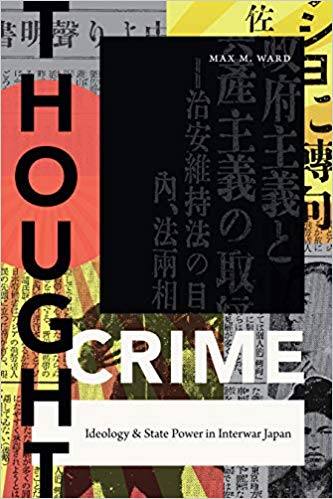On May 13, 2019, Waseda University’s Global Asia Research Center hosted Prof. Max M. Ward (Associate Professor of History, Middlebury College) for a discussion of his research, which was recently published in the monograph Thought Crime: Ideology and State Power in Interwar Japan (Duke University Press, 2019).
Prof. Ward’s presentation focused on the development Japan’s 1935 Peace Preservation Law (Chianijihō) from its initial passage in 1925 to suppress communism and anti-colonial nationalism—what were soon categorized as “thought crime” (shisō hanzai)—to its expansion into an elaborate system to ideologically convert thousands of political criminals throughout the Japanese Empire. Drawing upon his new book, he proposed that we read the law not merely as a legal instrument to suppress political ideologies, but also as an archive of imperial state ideology and its dissemination in the 1930s and 1940s.
After Prof. Ward’s presentation, scholars from the United States, United Kingdom, and Japan engaged in lively discussion about how this research related to historical and contemporary issues. Noting passages from the book, some asked how the situation in pre-war Japan paralleled recent developments in the United States involving authorities attempts to evaluate the radicalization of suspected terrorists. There was also a discussion of the current situation in Japan, in which activists opposing a recently passed State Secrecy Law have frequently warned of a return to the kind of oppression that took place under the Peace Preservation Law. Participants also discussed Japanese society’s current feelings towards the Emperor system, which gained considerable attention with the beginning of the Reiwa Era in May 2019.

